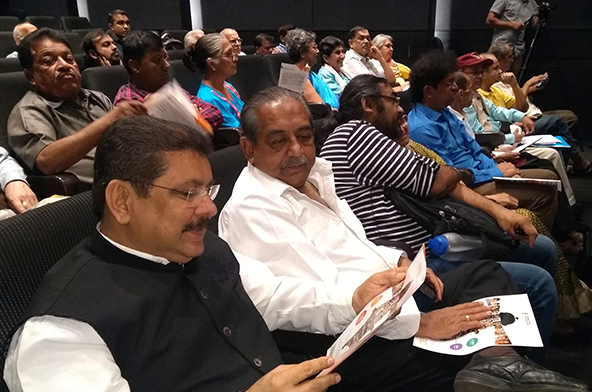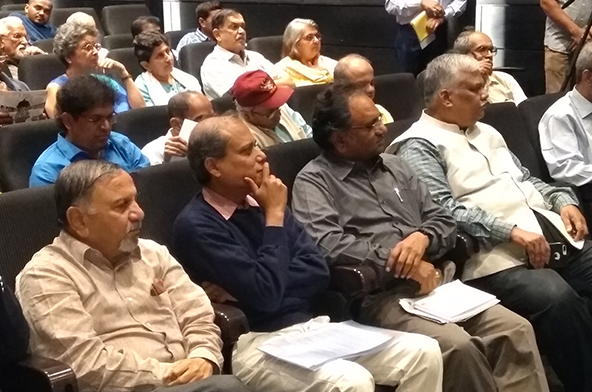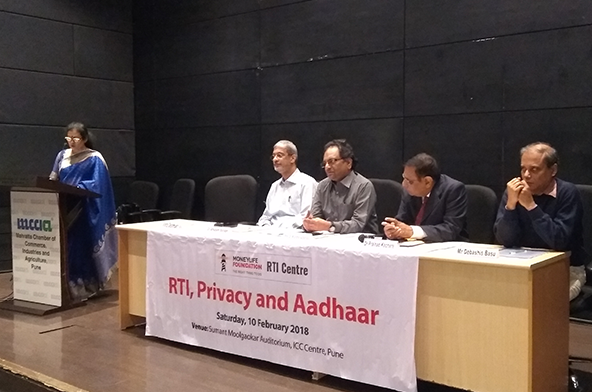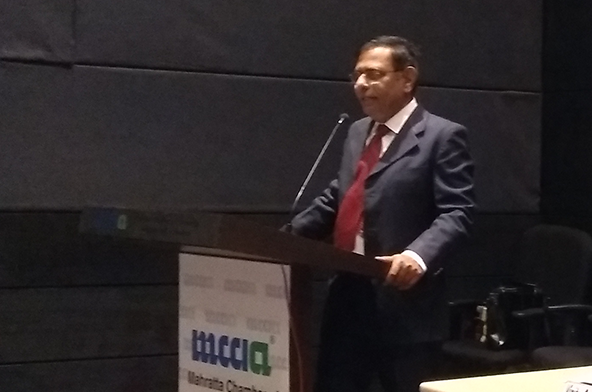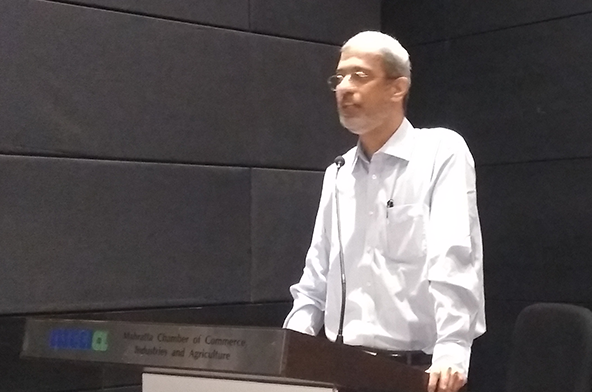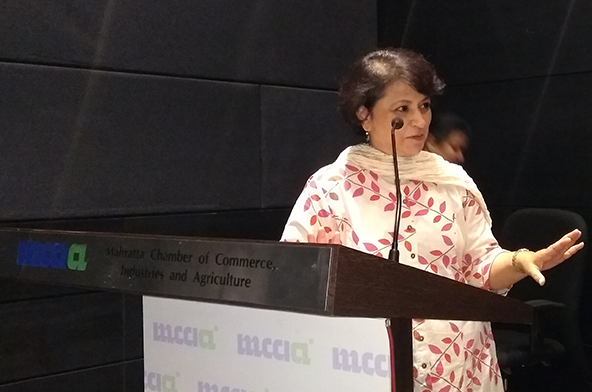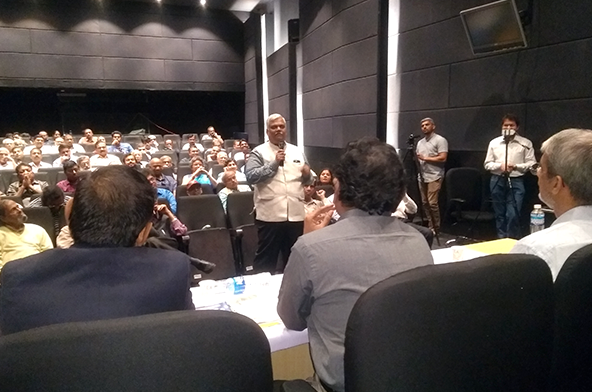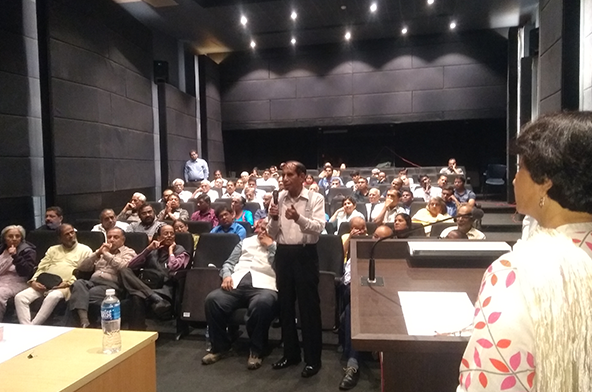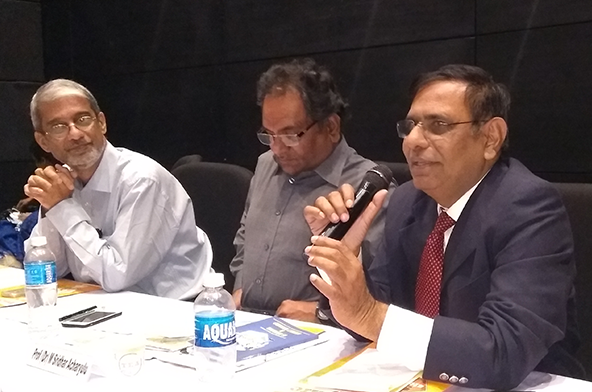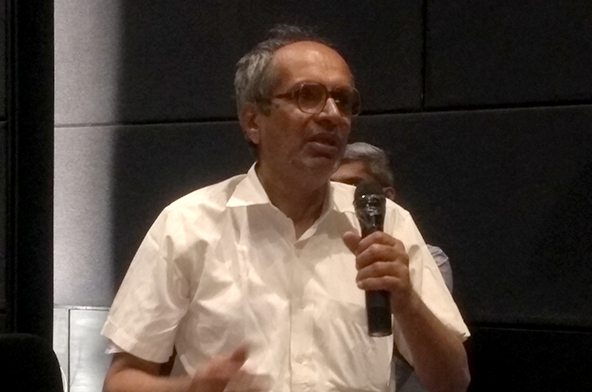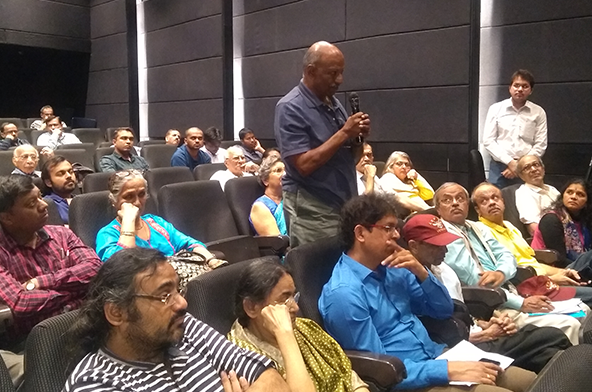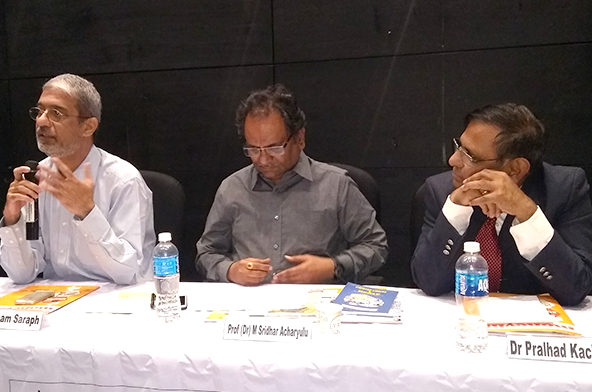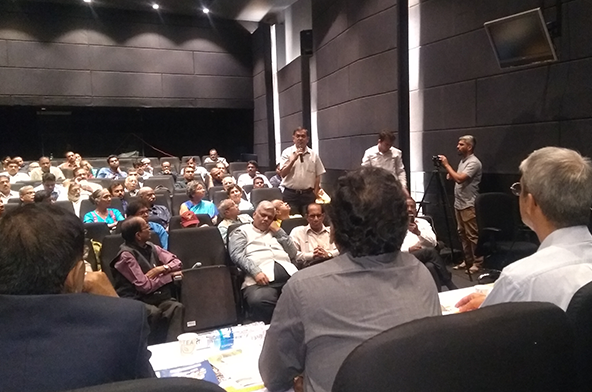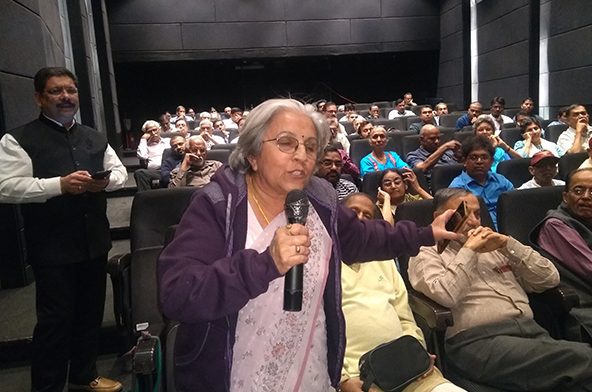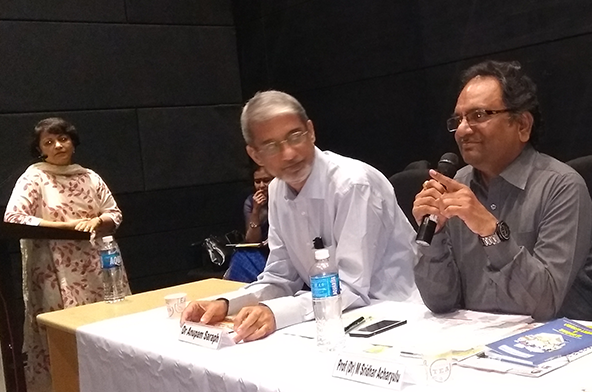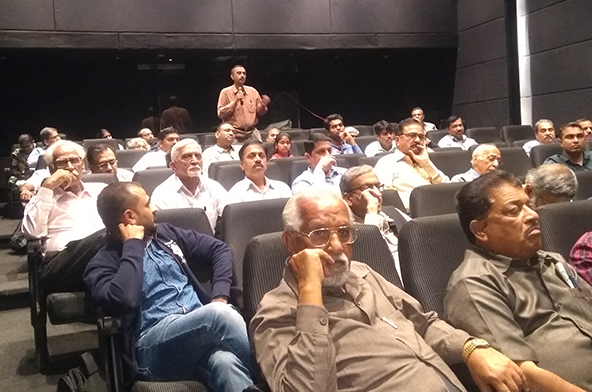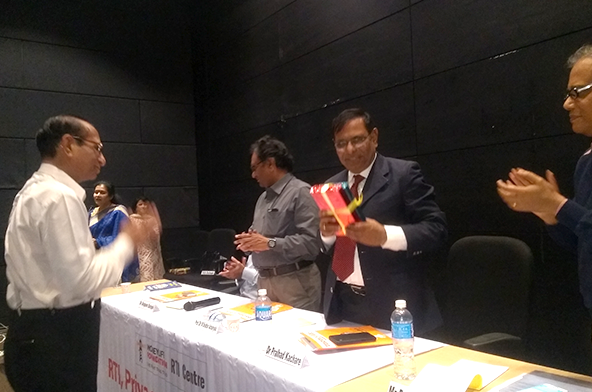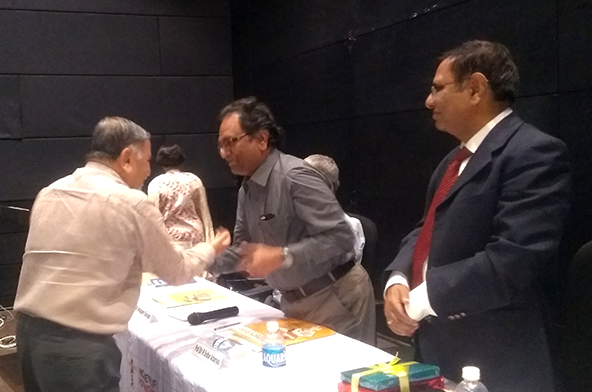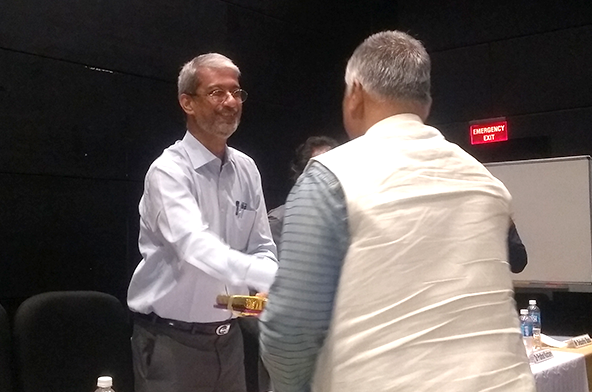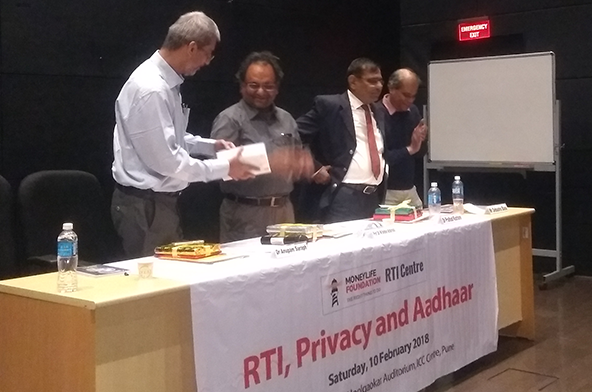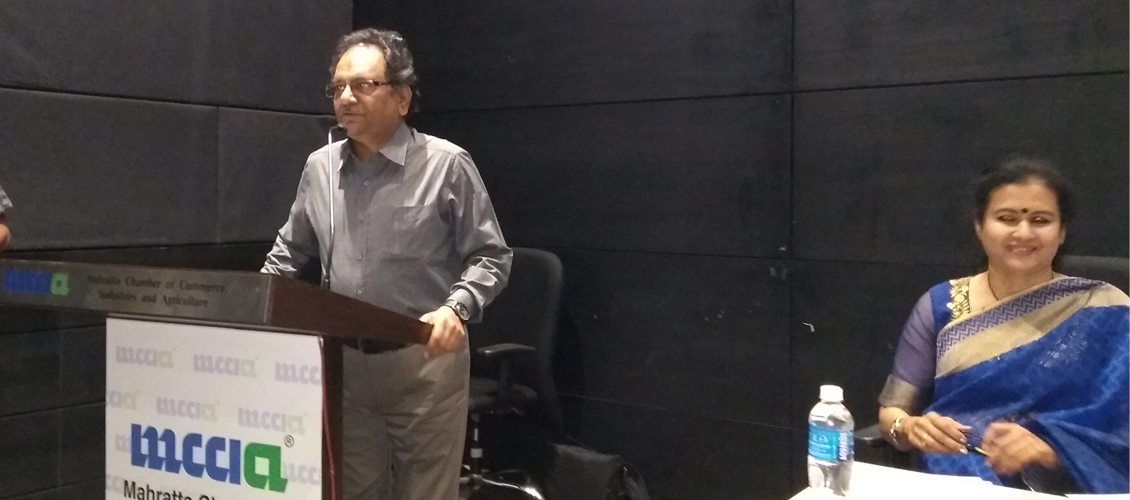
“There are two Indian laws, that can declare a person socially dead. Aadhaar has created third civil death for citizens. This is because leakages in Aadhaar data is reality, no option (from linking Aadhaar) is a reality and that there is no opt out option from Aadhaar,” says Prof Dr M Sridhar Acharyulu, Central Information Commissioner under the Right to Information (RTI) Act. He was speaking at a program on “RTI, Privacy and Aadhaar” organised by Moneylife Foundation’s RTI Centre at Pune.
UIDAI and the government have been claiming through advertisement and press releases that there are 1.2 billion Aadhaar holders across the country. “This means there are about 16 crore people who still do not have Aadhaar and around nine crore unique numbers (UIDs) are discarded by the Unique Identity Authority of India (UIDA). So what happens to these 25 crore citizens, in case Aadhaar is made mandatory for everything? Will they live or die?” Prof Dr Acharyulu asked.
Prof Dr Acharyulu, said, “There is no provision in UIDAI to prosecute offenders. And even for filing a complaint against UIDAI itself, you have to approach the same Authority. UIDAI does not share any information to Aadhaar holders, but the same it give to private parties and government agencies. UIDAI collects data from residents without explicit consent, but refuses to share their data sharing agreement with third parties under the RTI. We citizens must demand complete transparency from UIDAI, especially about data they have collected from residents.”
“Citizens need protection from the State,” the CIC said, adding “the State cannot claim privacy (for not sharing information under the Right to Information (RTI) Act, over citizens, but citizens have a right to protect own privacy.”
Participating in the panel discussion, Dr Pralhad Kachare, who has worked with YASHADA as Additional Collector and Associate Professor, said, “I had worked with UIDAI and know the limitations of Aadhaar project. While I recognise apprehensions in this project, I feel it needs to be revisited to make it more comprehensive.”
Dr Kachare also mentioned that people have no issues with sharing all data with private parties, like Google or Facebook and then call Aadhaar as surveillance tool.
Responding to this, Prof Dr Acharyulu said, “We hear this argument several times. But just because a private party is collecting data from people cannot be a reason for the government to do so. In fact the government itself should object to such data collection from third parties.”
Participating in the discussion, Dr Anupam Saraph, trustee of Moneylife Foundation and an expert on identification system, who has was the CIO of Pune city and was an advisor to Goa government, explained the difference between data collected by private parties and by the government through third parties. He said, “For example, when you open a Gmail account, there is an agreement you have to sign and there you have an option to opt-out. In Aadhaar there is neither any agreement nor an option to opt-out.”
Dr Saraph also explained the difference between data sharing between two parties and giving access to third parties. He said, “When I carry out a transaction with my bank, the data is shared and transferred between the bank and me. It also gives me data protection from third parties and saves me from a possible fraud. When Aadhaar is used, we have no control on who will get access to the data that was supposed to be between two concerned parties.”
Dr Saraph has used RTI for obtaining information from UIDAI, which reveals that their record is not unique and it cannot be used for de-duplication. “Nobody from UIDAI certifies Aadhaar. Identification and authentication are different and UIDAI has no definition on either of this, as per the reply I received under the RTI,” he added.
The panel discussion was moderated by senior journalist Sucheta Dalal, Founder-Trustee of Moneylife Foundation. She said, “We as citizens need to be alert and resist all efforts to mandatory linking of Aadhaar with several services not related with use of government subsidy. Citizens need to wake up to dangers of the way Aadhaar is implemented and raise their voices now”.
Several RTI activist including former Central Information Commissioner Shailesh Gandhi, Vijay Kumbhar, Vinita Deshmukh, Sulaiman Bhimani, as well as citizens, activists from Pune and Mumbai participated in the program.


